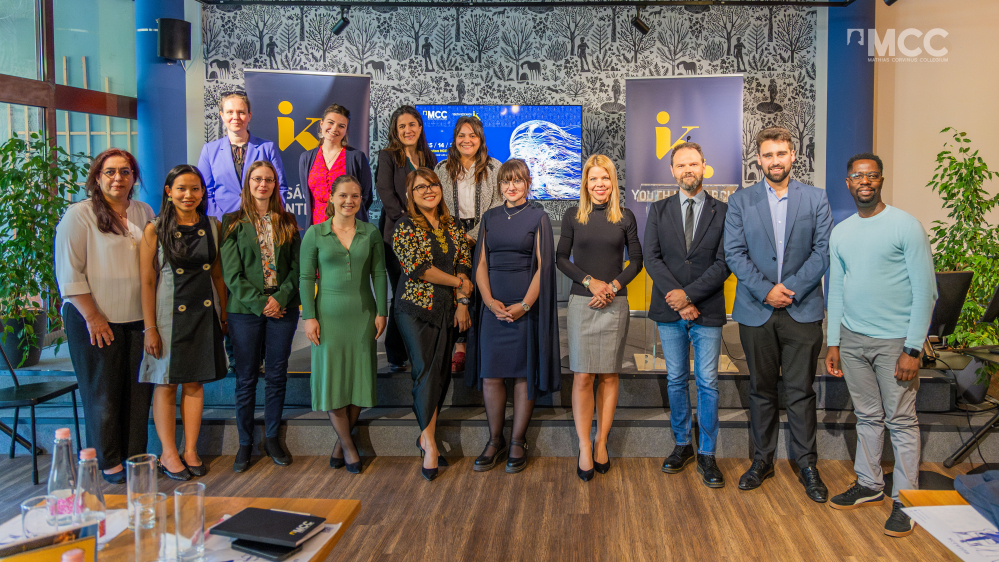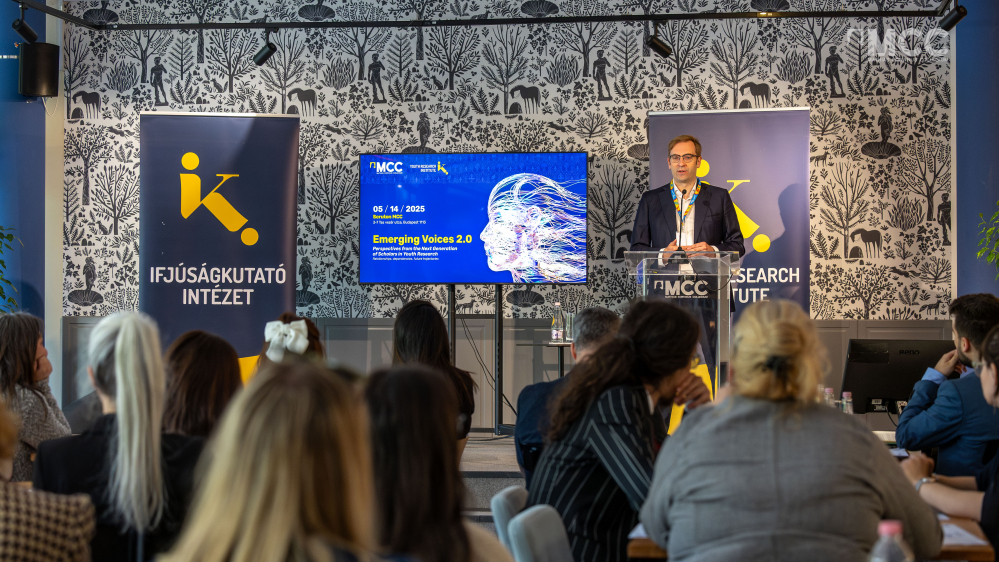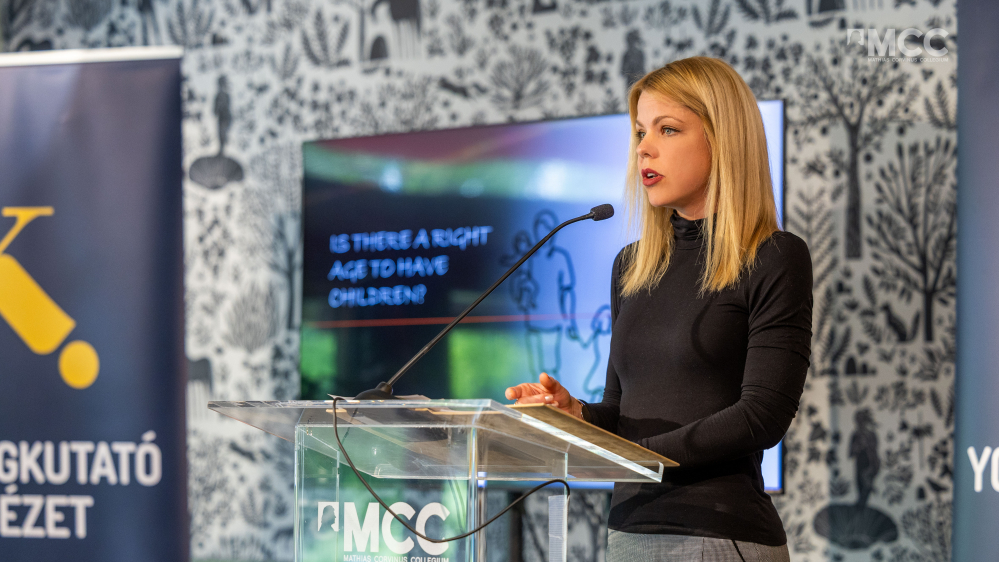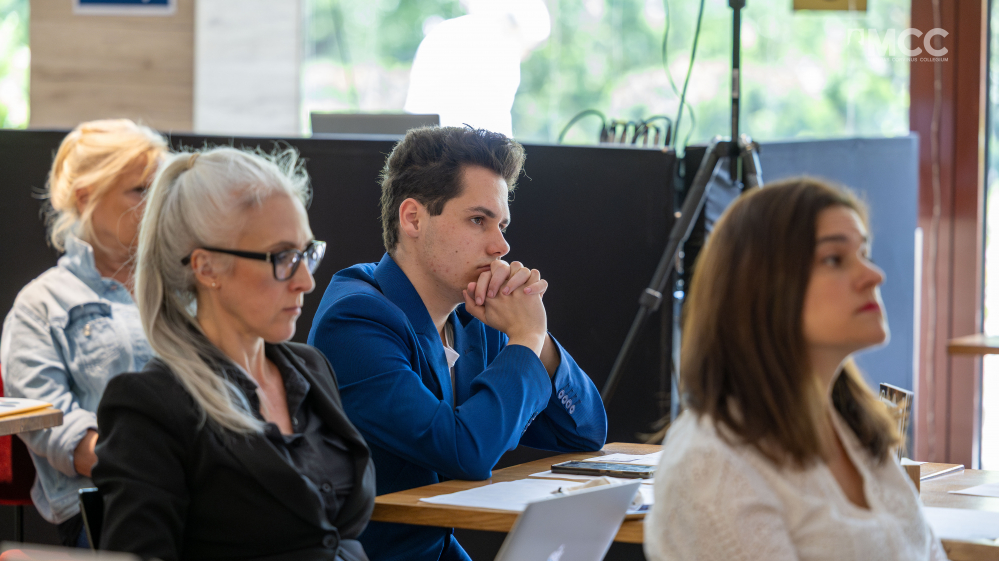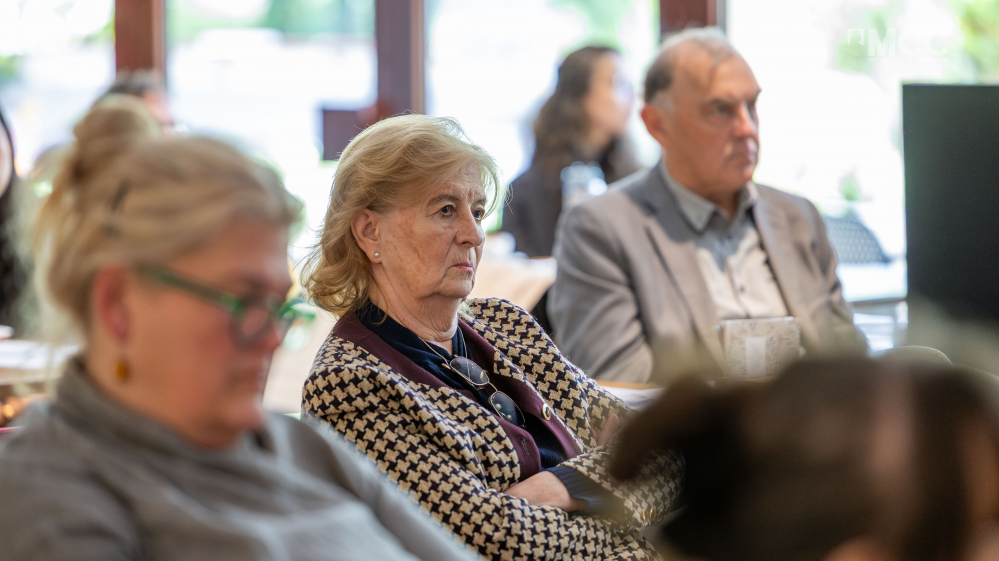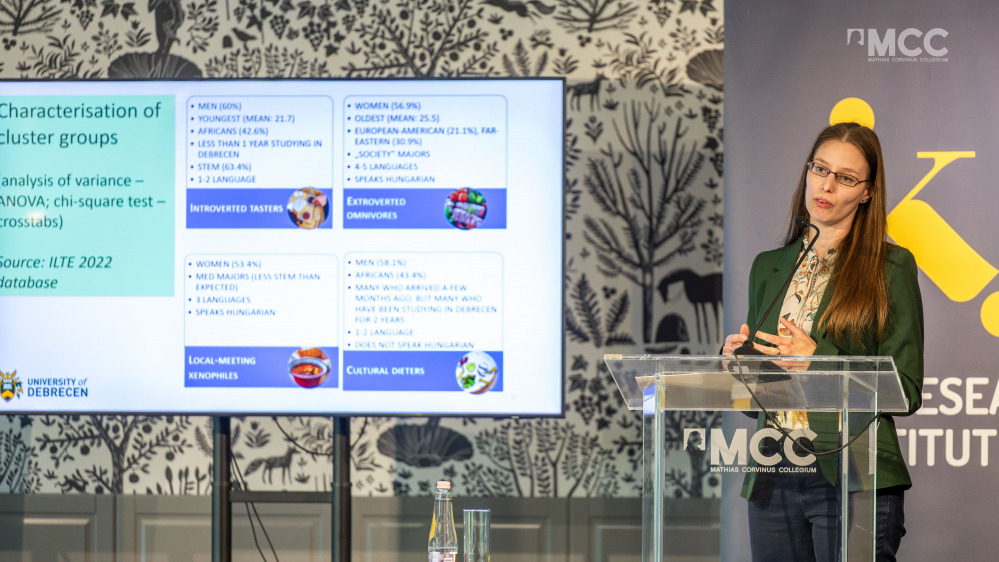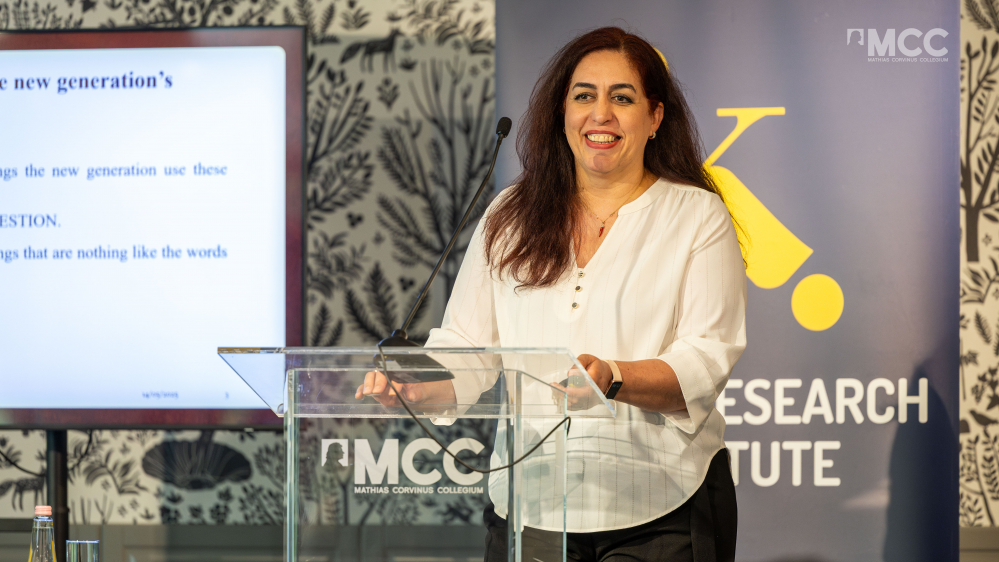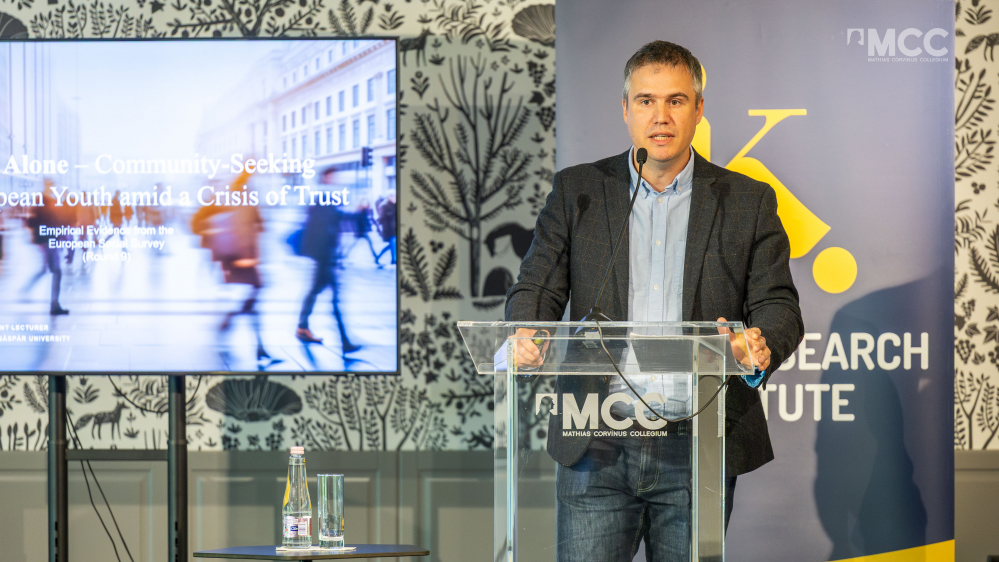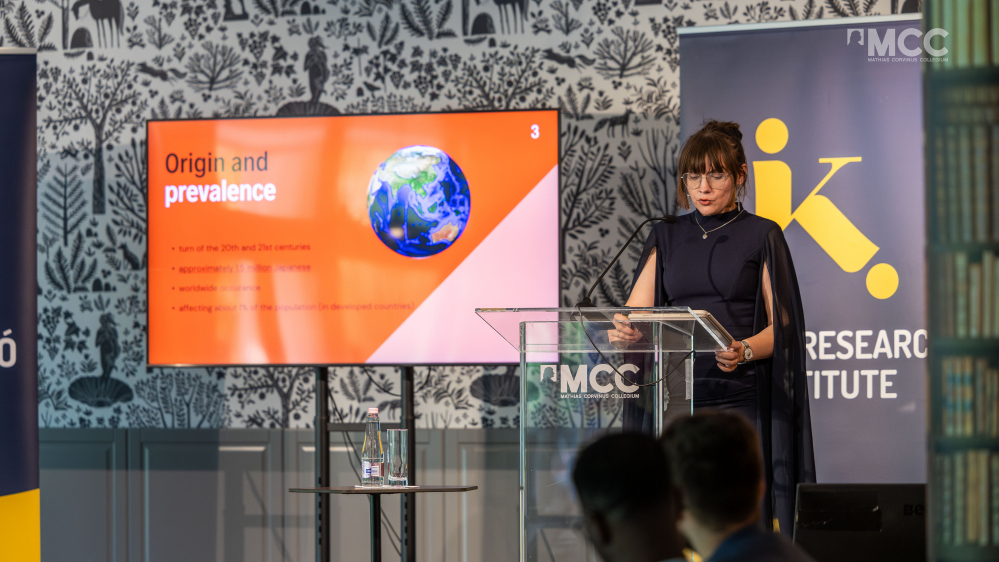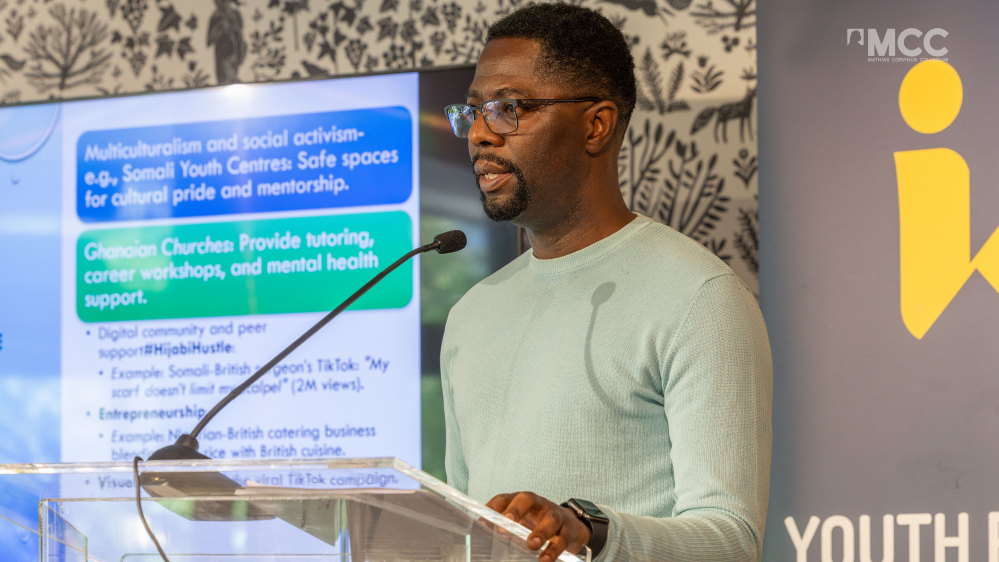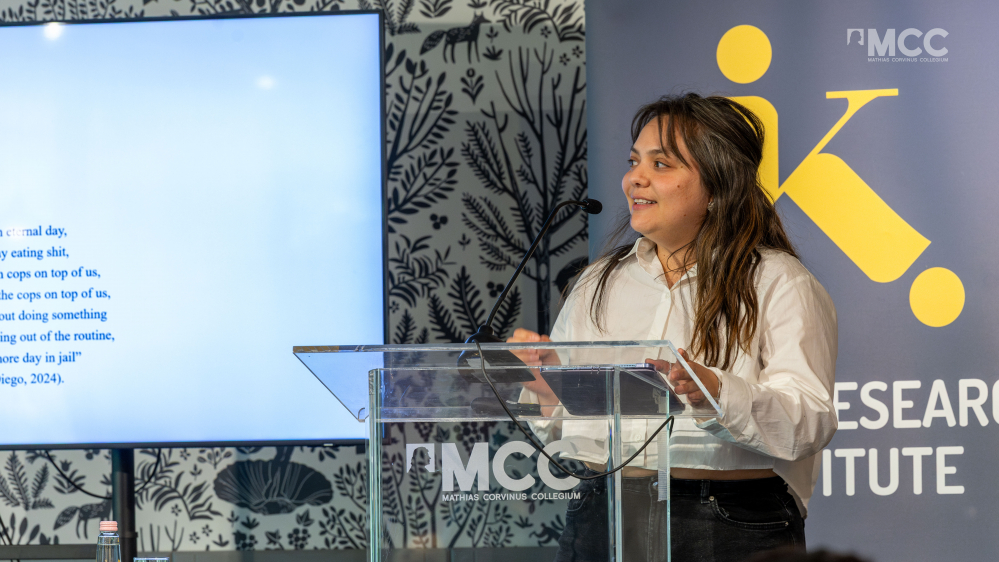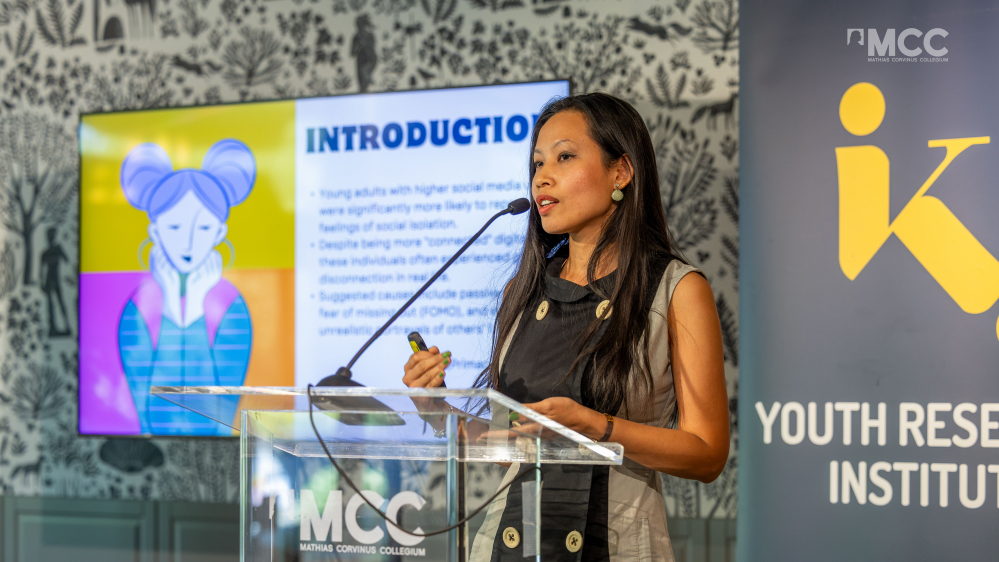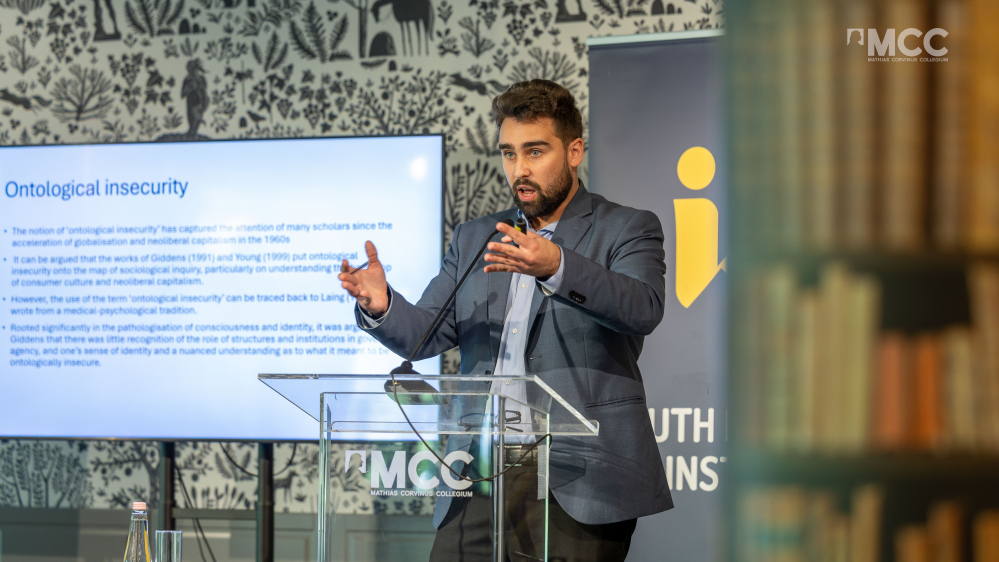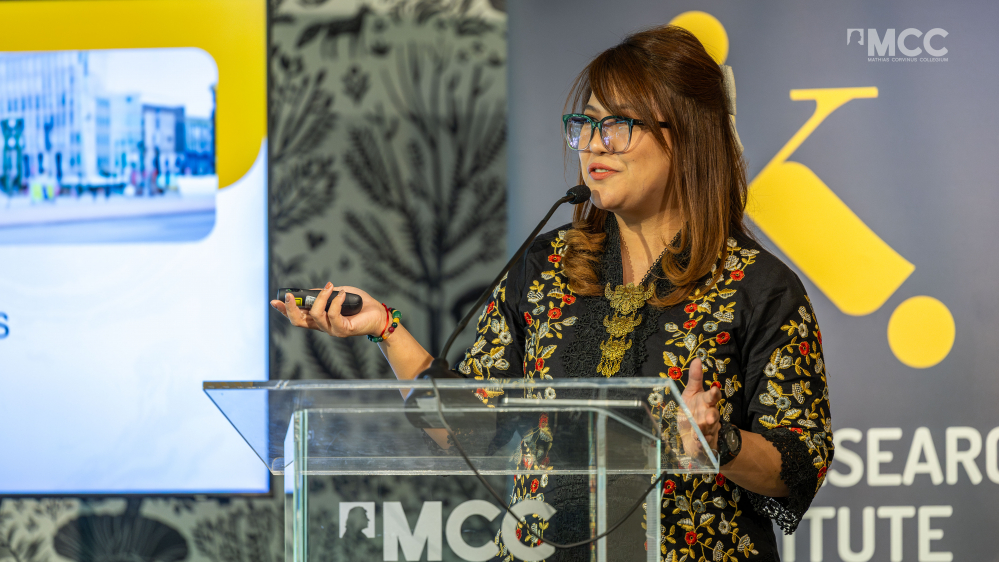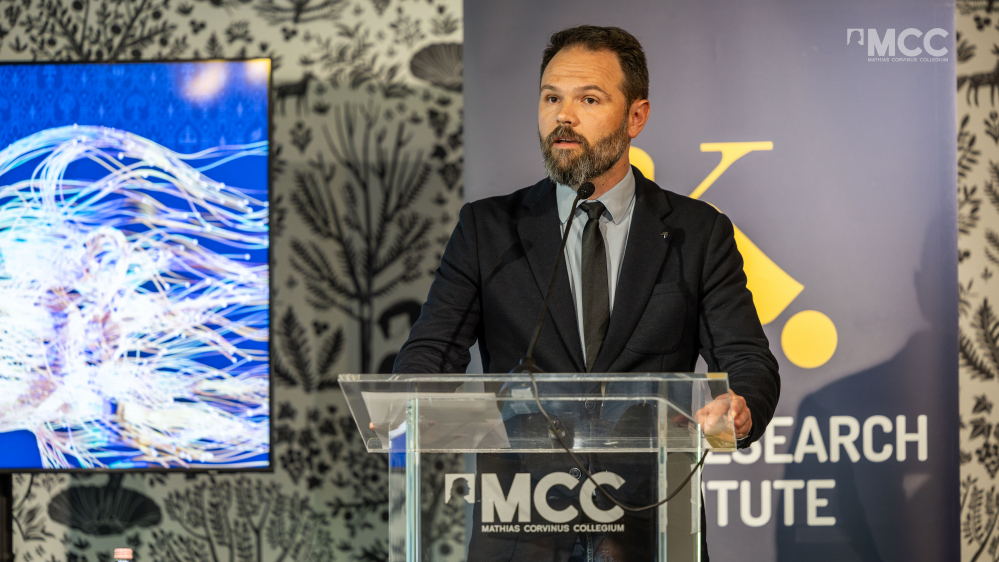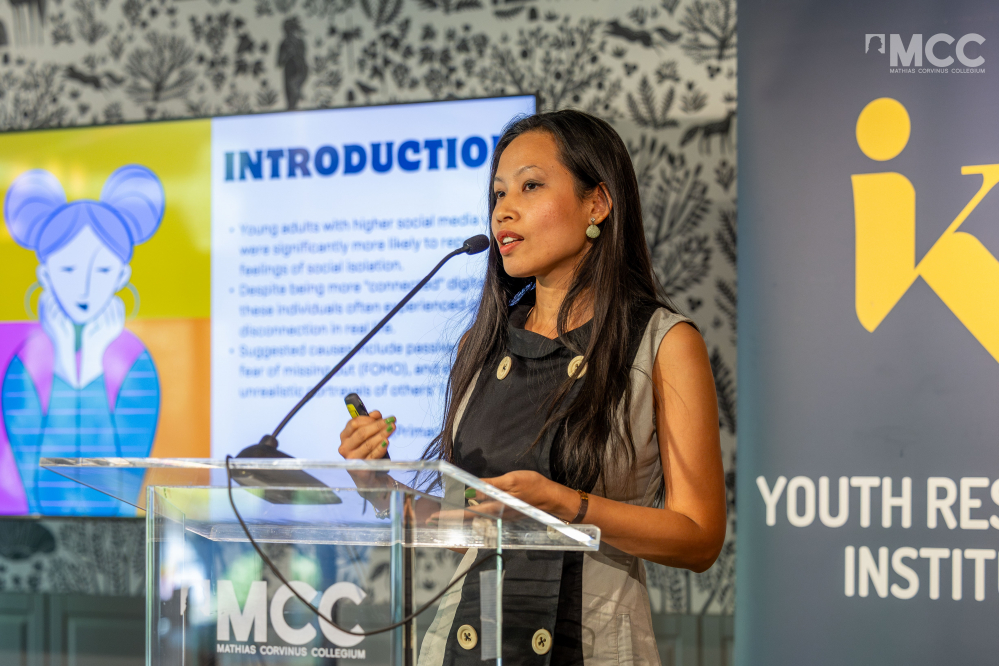The third panel of the "Emerging Voices 2.0" conference, titled "The dark side of being young in the 21st century – exploring new dependencies, fetishes, and fears", brought together three researchers who shed light on the less visible, often overlooked struggles facing young people today. Their presentations explored youth isolation, migrant identity struggles, and the dynamics of crime and resistance, each offering a unique perspective on how young people navigate social expectations and systemic pressures.
Amanda Fortuna-Sobczak from Adam Mickiewicz University examined the phenomenon of hikikomori in Poland, a form of extreme social withdrawal first identified in Japan in the late 20th century. Although commonly associated with Asian societies, hikikomori is now being recognized in various European countries, including Spain, Ukraine, and increasingly, Poland. Fortuna-Sobczak argued that while cases remain largely hidden, the growing academic and public interest signals a rising prevalence. She highlighted that hikikomori is often a stress response to modern societal demands, exacerbated by high expectations, unsupportive family environments, lack of trust, and identity crises fueled by globalization and social transformation. Drawing parallels between Japan and Poland—both experiencing rapid secularization and cultural shifts—she emphasized that hikikomori reflects deeper structural pressures on youth. The challenge remains that due to its very nature as a syndrome of withdrawal, it often goes undetected, making early intervention and support difficult.
Dr. Nomatter Sande from the University of Glasgow focused on the aspirations and challenges faced by young people of African migrant backgrounds in the UK, a country noted for its multicultural environment. With approximately 2.5 million people of African descent living in the UK, 40% of whom are young, Sande explored the intersectional struggles these youths face. Migration often places intense familial expectations on the young, who are seen as the bearers of collective success. Many African students, around 59%, face significant academic difficulties, burdened by pressures to excel not just for themselves but for their families and wider communities. Sande described how these expectations are deeply rooted in African communal values, where education is a shared responsibility and personal achievements are seen as family victories. However, this collectivist mindset can feel overwhelming, with many youths feeling compelled to fulfill their parents' unfulfilled dreams. In response, resilience emerges through multicultural social activism, and religious communities—particularly African churches and Islamic centers—play a crucial role in offering academic tutoring, career support, and mental health resources. Digital communities also provide alternative spaces for connection and empowerment. Sande concluded by emphasizing the need to celebrate the contributions of African migrant youth, shifting the narrative beyond their struggles.
Ignacia Sierra from the University of Sussex offered a case study on a young Chilean offender named Diego, to explore how young people involved in crime experience agency and resistance. Her research focused on youth under the supervision of SENAME, Chile's National Service for Minors, which deals with young offenders aged 14-17. Conducting interviews in a male prison, Sierra utilized a blend of narrative and thematic analysis, paying attention not only to what was said but how it was expressed. She described the intense power dynamics during her interview with Diego, who asserted dominance from the outset by framing questions on his terms, for example asking “What can I explain for you?” rather than the expected “What do you want to know?” This subtle yet significant shift allowed him to control the interview environment, reflecting a broader struggle to maintain agency in an inherently restrictive and controlling space. Sierra processed her interview data creatively, constructing poems to capture the emotional and thematic essence of these conversations. Diego's narrative was deeply rooted in his street experiences, illustrating an ongoing battle to assert identity, maintain power in personal relationships, and resist the constraints imposed by the penal system.
Together, these three presentations provided critical insights into how young people worldwide confront hidden dependencies, navigate complex social expectations, and carve out spaces of resistance and agency in often adverse conditions.


